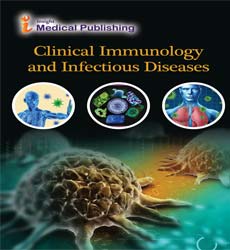Infectious Diseases
Abstract
Diseases can be genetic, biological, physical as well as chemical. Basically, diseases are a pathological condition of body parts or tissues characterized by an identifiable group of science and symptoms, whereas Infectious Diseases are caused by an infectious agent such as a bacterium, virus, protozoa, or fungus that can be passed from person to person. Some are transmitted by insects or animal bites while others are passed by ingesting contaminated food or water or being exposed to organisms in the environment. Infection occurs when an infectious agent enters the body and begins to reproduce May or may not lead to Disease. Pathogen infectious agent that causes diseases. And there are different antibiotics curing these infectious Diseases. Infectious diseases throughout History:
• Infectious agents have probably always caused disease in humans.
• Smallpox has been described in ancient Egyptian and Chinese writings and may have been responsible for more deaths than all other infectious diseases combined.
• There is evidence that malaria and poliomyelitis have existed since ancient times.
• The first recorded bubonic plague epidemic ravaged the Byzantine Empire during the 6th century. It was named the Plague of Justinian after emperor Justinian I , who was infected but survived through extensive treatment.
• In the 14th century, the bubonic plague, or Black Death, killed about 20,000,000 people in Europe alone. In the late Middle Ages(1340 - 1400 ) Europe experienced the most deadly disease outbreak in history when the Black Death, the infamous pandemic of bubonic plague, hit in 1348, killing a 3rd of the human population.
• From 1665 to 1666, the plague hit London killing an estimated 100,000 people; 20% of London’s population.
• in the 20th century the 1918 influence of may have killed up to 50,000,000 people worldwide
• Close to 20,000,000 people have died of AIDS to date
Open Access Journals
- Aquaculture & Veterinary Science
- Chemistry & Chemical Sciences
- Clinical Sciences
- Engineering
- General Science
- Genetics & Molecular Biology
- Health Care & Nursing
- Immunology & Microbiology
- Materials Science
- Mathematics & Physics
- Medical Sciences
- Neurology & Psychiatry
- Oncology & Cancer Science
- Pharmaceutical Sciences
